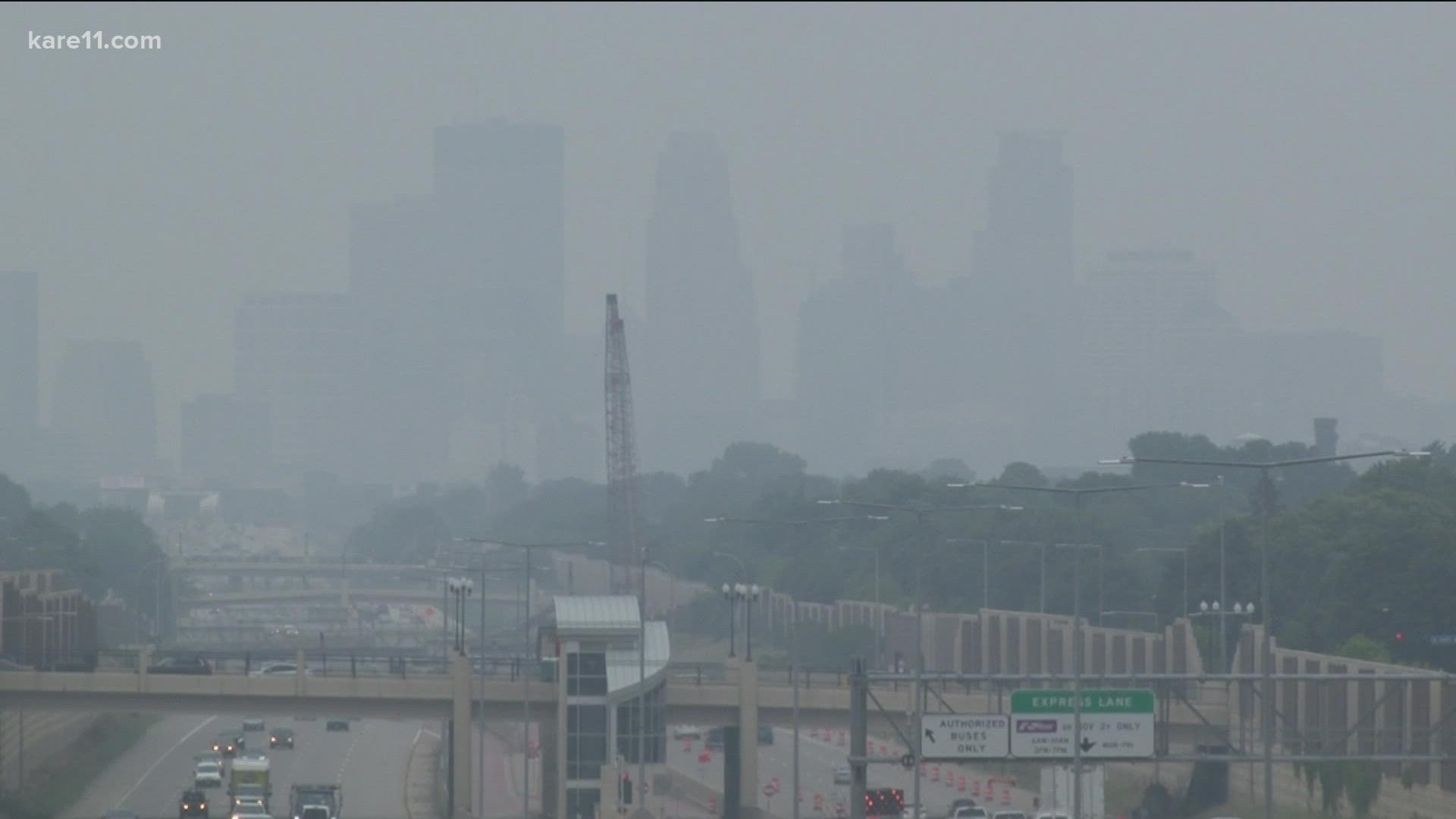MINNEAPOLIS — The Minnesota Pollution Control Agency (MPCA) has extended an air quality alert for the entire state due to wildfire smoke.
The last time such an alert was issued for all of Minnesota was in August 2018. The organization says this is a "long duration and an unprecedented significant air quality event."
According to MPCA, the alert took effect Wednesday, July 28 at 10 p.m. and will now last through 3 p.m. on Tuesday, Aug. 3. It was initially set to expire at that time on Friday, July 30.
MPCA says the extension is due to another large area of smoke that is expected to enter Minnesota beginning Saturday. MPCA believes the worst of the smoke will likely arrive overnight Friday, and then gradually work south throughout Saturday afternoon.
Southerly winds brought the smoke from Canada to the northern part of Minnesota Wednesday night, and to central and southern parts of Minnesota mid-morning Thursday.
Central Minnesota into the northwest metro is currently the area seeing the thickest smoke concentration at the surface, regions that includes St. Cloud and Brainerd. The area falls within the "very unhealthy" to "hazardous" category with an air quality index (AQI) of more than 200, and in some cases more than 300.
“There’s an ongoing drought in Minnesota and north into Canada, and a month ago, fires got going and they continue to grow,” said Nicholas Witcraft, with the Minnesota Pollution Control Agency. “This week is the most I’ve seen in that area.”
The Air Quality Index runs on a scale of 0 - 500, with 500 being the highest concentration of smoke. Generally, an AQI less than 100 is considered healthy for most people to be active in the outdoors.
Some people will be more likely to be sensitive when fine particle pollution reaches unhealthy levels. They are:
- People who have asthma or other breathing conditions such as chronic obstructive pulmonary disease (COPD)
- Those who have heart disease or high blood pressure
- Children and older adults
- People of all ages who have been doing extended or heavy physical activity (e.g. playing sports, working, etc.)
- Anyone that doesn't have air conditioning to reduce indoor air pollution.
If you believe you fall into one or more of these groups, the MPCA recommends the following precautions:
- Take it easy and listen to your body.
- Limit, change, or postpone your level of physical activity.
- Stay away from local sources of air pollution such as busy roads and wood fires, if possible.
- Keep indoor air as clean as possible. Indoor air filtration or air conditioning with the fresh-air intake closed or set to recirculation can help.
- Make sure you have a relief/rescue inhaler with you if you have breathing conditions such as COPD or asthma.
- If you have asthma, make sure to review and follow your written asthma plan. If you don't have one, it is recommended that you make an appointment to see your health provider to make one.
Furthermore, there are several ways that you can help reduce the pollution in the air. Reducing your vehicle trips, using public transportation or carpooling, avoiding backyard fires, and postponing usage of gasoline powered lawn/garden equipment can also have a positive impact to reduce the overall pollution.
For more detailed information on the current air quality conditions, you may visit MPCA's Air Quality Index webpage. Furthermore, additional information on health and indoor and outdoor air quality can be found here.

